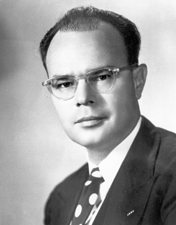
Charles Edward Potter was a U.S. Representative and a U.S. Senator from the state of Michigan.
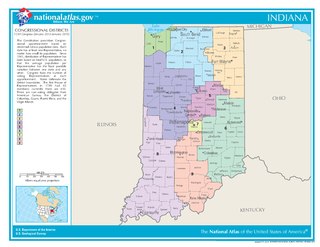
These are tables of congressional delegations from Indiana to the United States House of Representatives and the United States Senate.

Winnifred Mason Huck was an American journalist and politician from the state of Illinois who became the third woman to serve in the United States Congress, after Jeannette Rankin and Alice Mary Robertson, the first woman to represent Illinois in Congress, the first woman to win a special election for the United States Congress, and the first mother. She was elected to fill the at-large seat of her father, Representative William Ernest Mason, after his death.

The Sixty-seventh United States Congress was a meeting of the legislative branch of the United States federal government, consisting of the United States Senate and the United States House of Representatives. It met in Washington, D.C. from March 4, 1921, to March 4, 1923, during the first two years of Warren Harding's presidency. The apportionment of seats in the House of Representatives was based on the Thirteenth Census of the United States in 1910. Both chambers had a Republican majority.
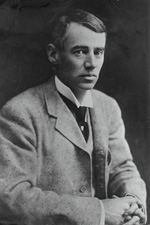
Thomas Francis Bayard Jr. was an American lawyer and politician from Wilmington, Delaware. He was a Democratic U.S. Senator from Delaware in the 1920s.
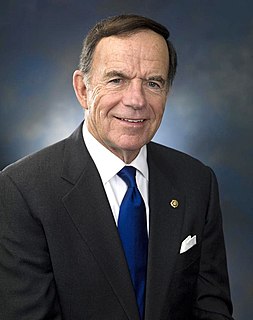
Paul Grattan Kirk Jr. is an American lawyer and politician who served as a United States Senator from Massachusetts from 2009 to 2010, having been appointed to fill the vacancy created by the death of Ted Kennedy. From 1985 to 1989, he chaired the Democratic National Committee (DNC).

Vera Cahalan Bushfield was a U.S. Senator from South Dakota briefly in 1948, as well as the First Lady of South Dakota from 1939 to 1943.

The United States Senate elections of 1908 and 1909, some states elected their senators directly even before passage of the 17th Amendment in 1913. Oregon pioneered direct election and experimented with different measures over several years until it succeeded in 1907. Soon after, Nebraska followed suit and laid the foundation for other states to adopt measures reflecting the people's will. By 1912, as many as 29 states elected senators either as nominees of their party's primary or in conjunction with a general election. The Republicans lost two seats overall.

Ernest Willard Gibson was an American politician and lawyer from Vermont. He served as a United States Representative and Senator.
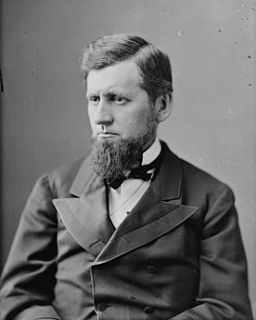
The United States Senate elections of 1904 and 1905 were elections that coincided with President Theodore Roosevelt's landslide election to a full term. Party share of seats remained roughly the same, when including vacancies and appointments, and the Republicans retained a significant majority over the Democrats.

The 1930 United States Senate special election in Pennsylvania was held on November 4, 1930. Joseph R. Grundy, incumbent Republican appointed to fill the vacancy created by the unseating of William Scott Vare, was defeated for re-nomination. The Republican nominee, James J. Davis, defeated Democratic nominee Sedgwick Kistler to win the election.
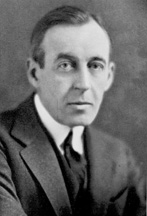
The 1922 United States Senate election in Pennsylvania was held on November 7, 1922. Incumbent Republican U.S. Senator David A. Reed, who was appointed in August 1922 to fill the vacancy created by the death of William E. Crow, was elected both to complete the remainder of Crow's term, ending in March 1923, and to a full six-year term in his own right, beginning upon the expiration of Crow's term.

The 1922 United States Senate special election in Pennsylvania was held on November 7, 1922. Incumbent Republican Senator George Pepper, who had been appointed to the seat by Governor William Sproul following the death of Boies Penrose, was elected to fill the remaining four years on the term to which Penrose had been elected in 1920. Pepper comfortably defeated five other candidates, including Democratic nominee Fred Kerr of Clearfield County.

The 1988 United States Senate election in Pennsylvania was held on November 8, 1988. Incumbent Republican U.S. Senator H. John Heinz III successfully sought re-election to another term, defeating Democratic nominee Joe Vignola.

The 1905 United States Senate election in Pennsylvania was held on January 17, 1905. Incumbent Philander C. Knox was elected by the Pennsylvania State Assembly to his first full term in the United States Senate.

The 1909 United States Senate special election in Pennsylvania was held on March 16, 1909. George T. Oliver was elected by the Pennsylvania General Assembly to the United States Senate.




















